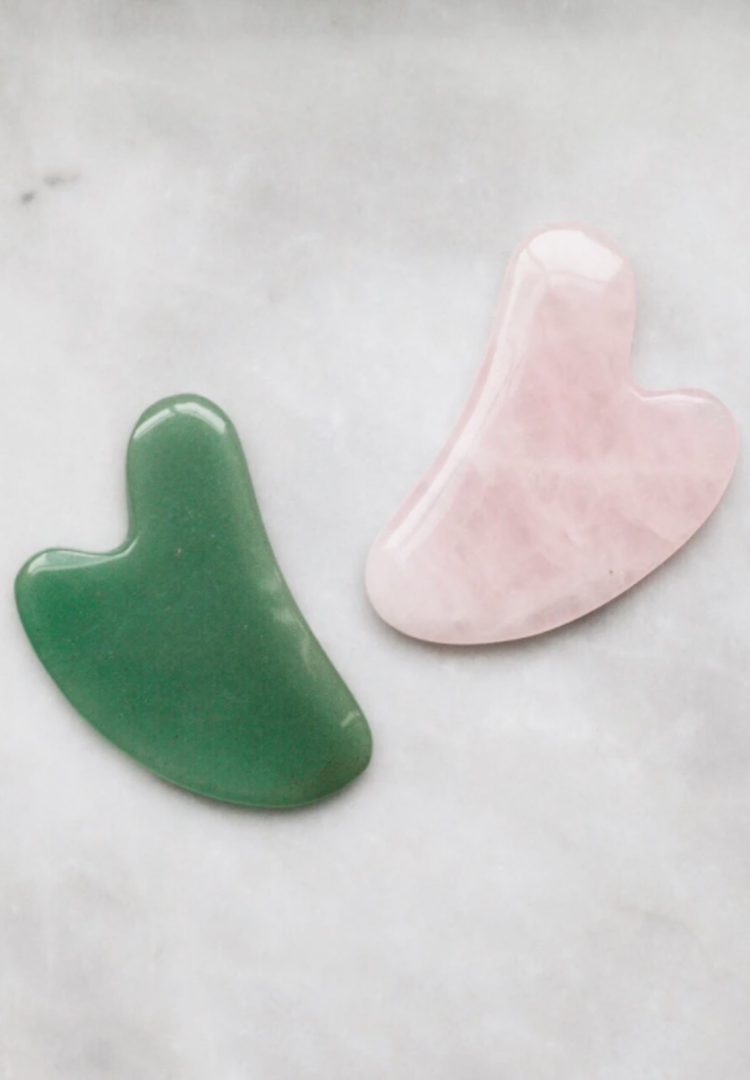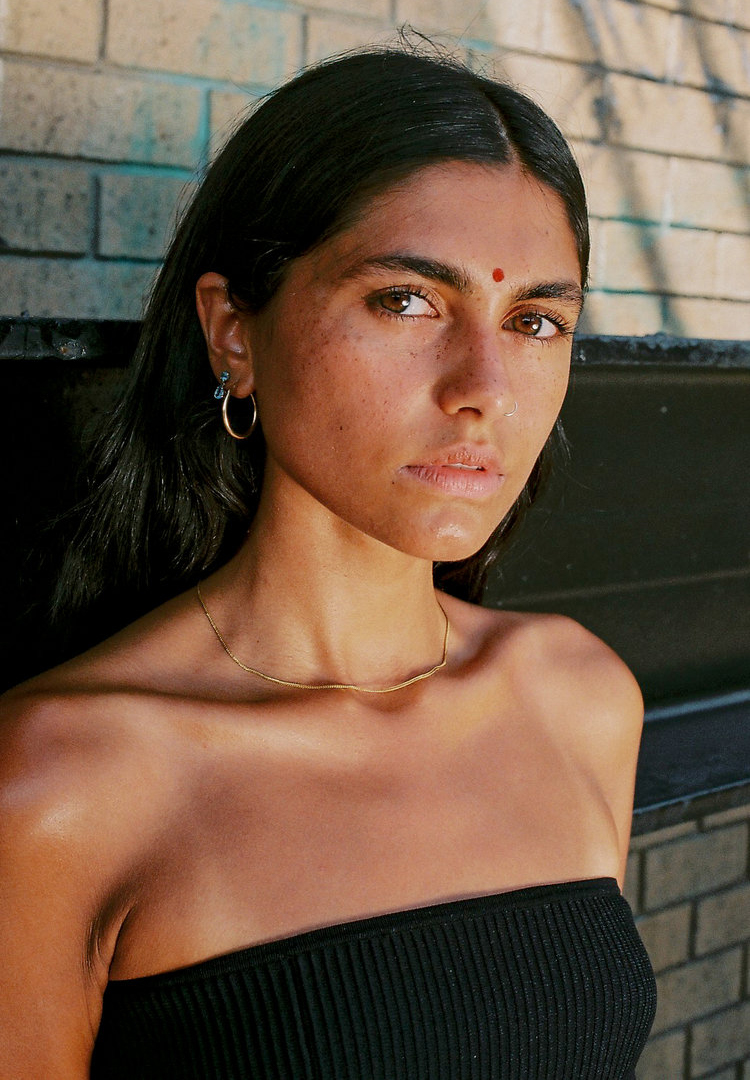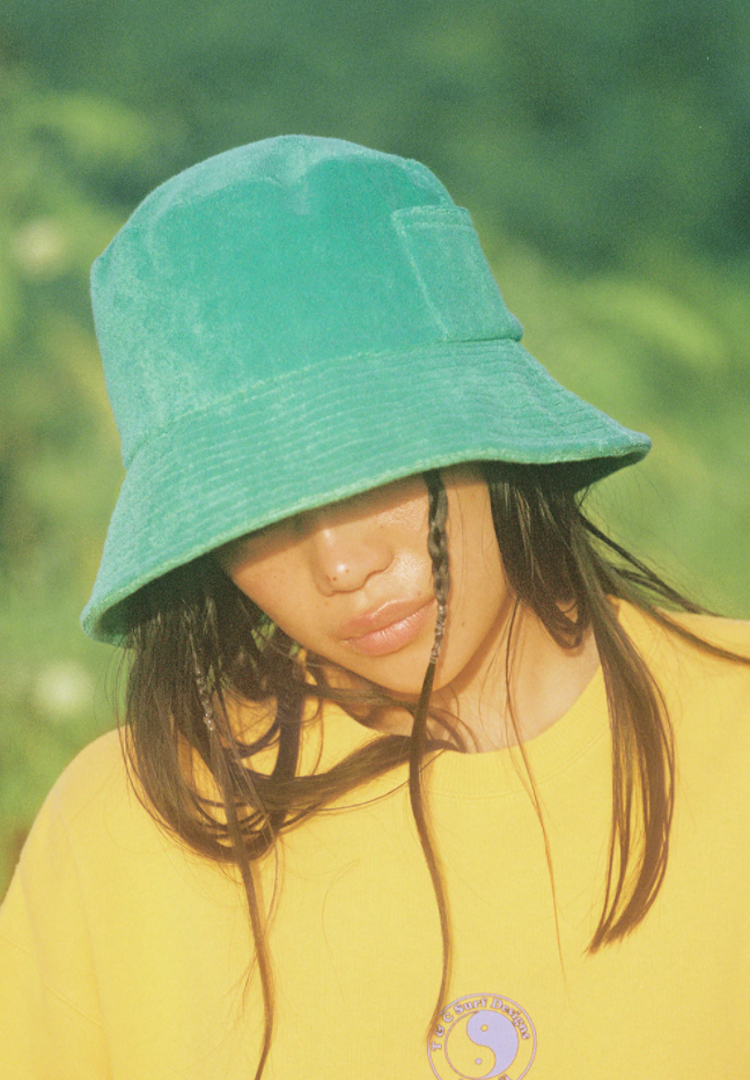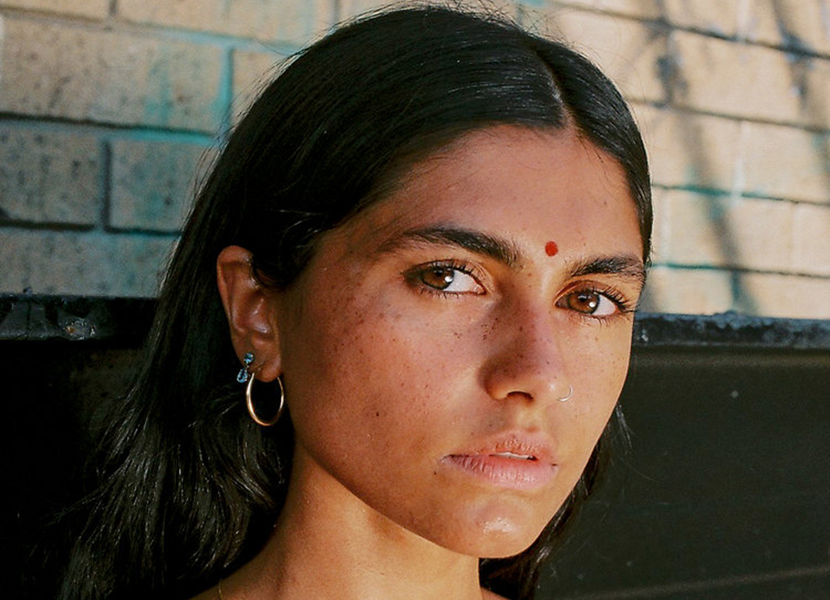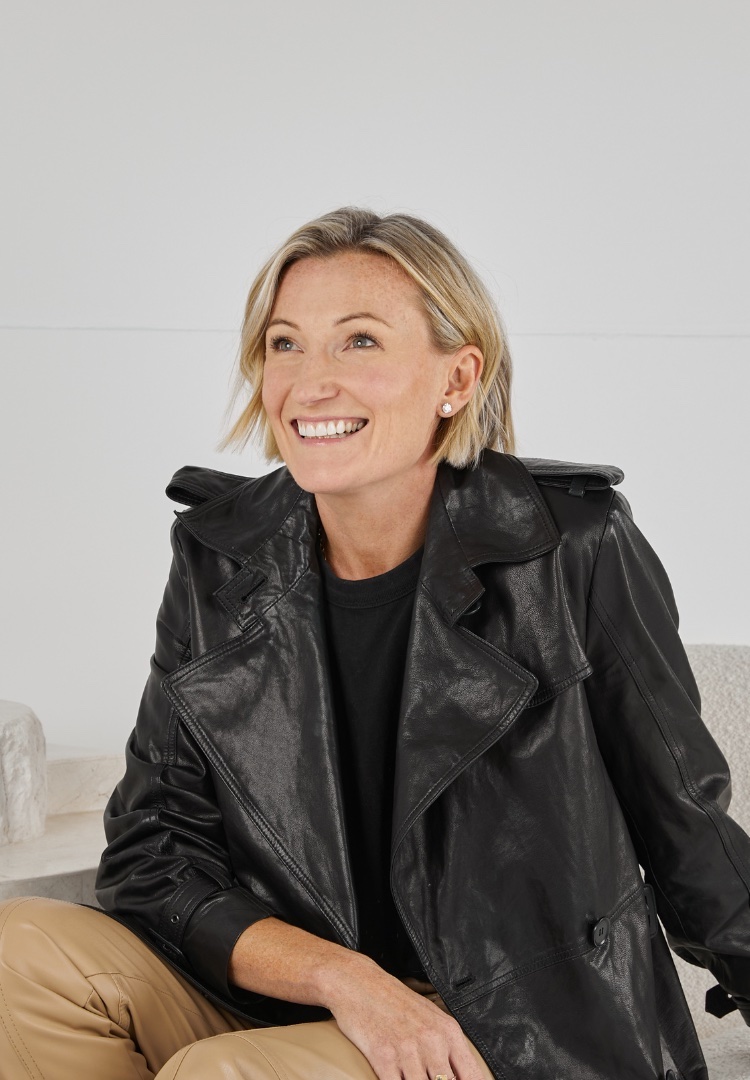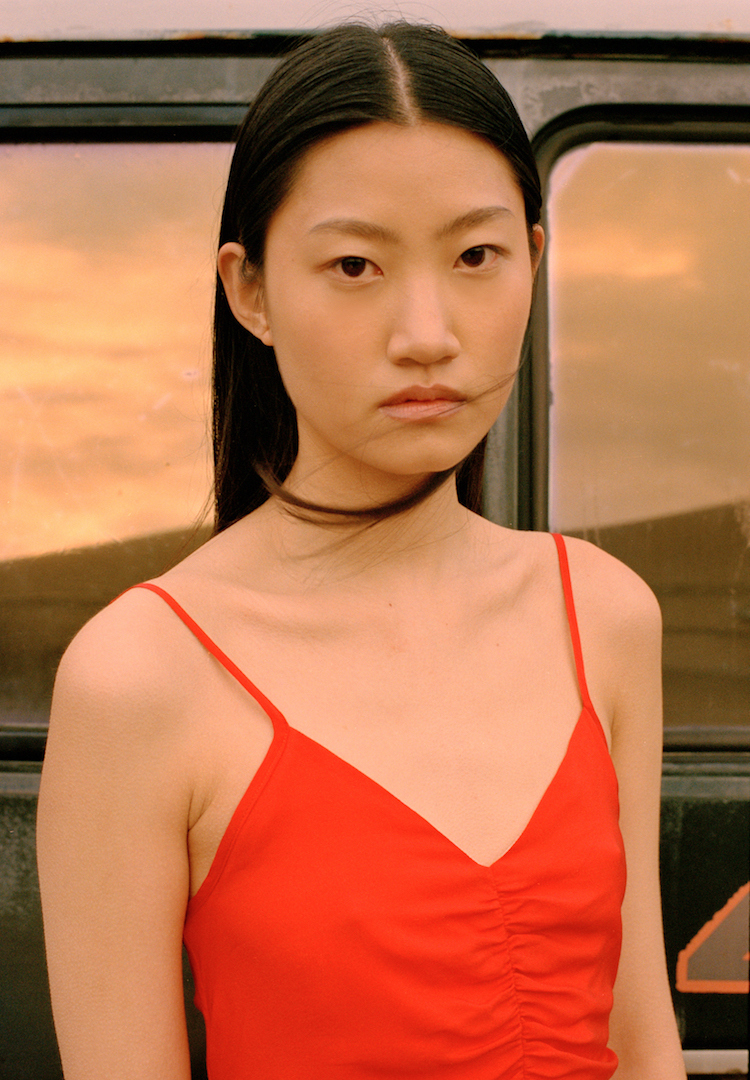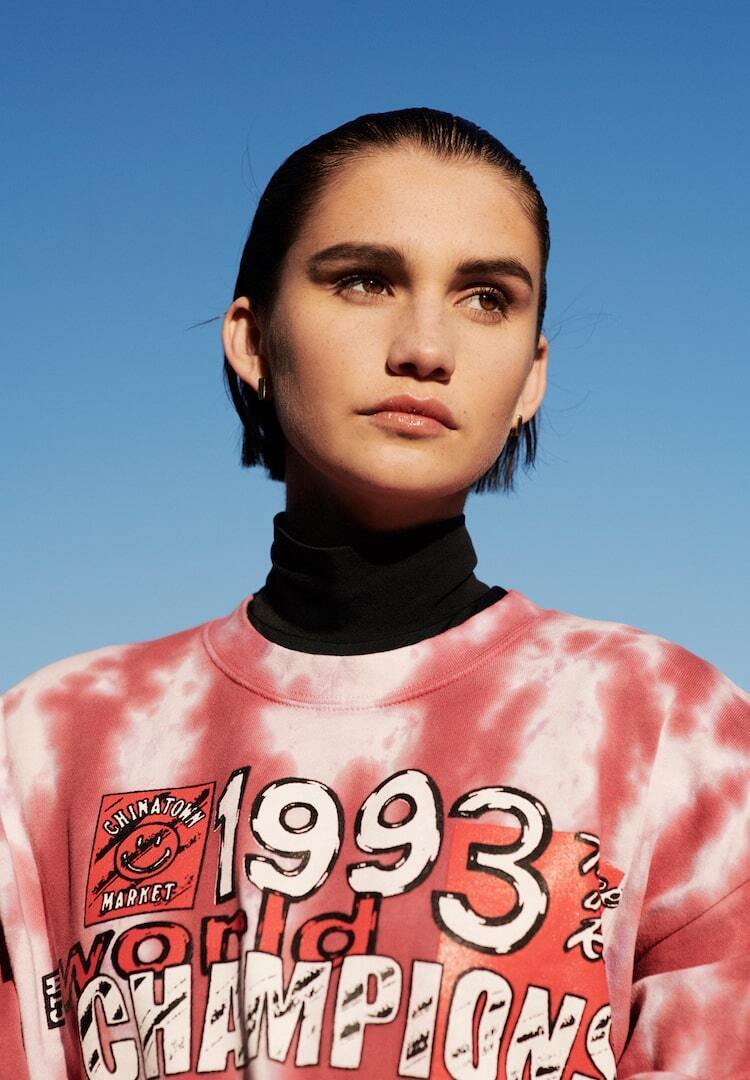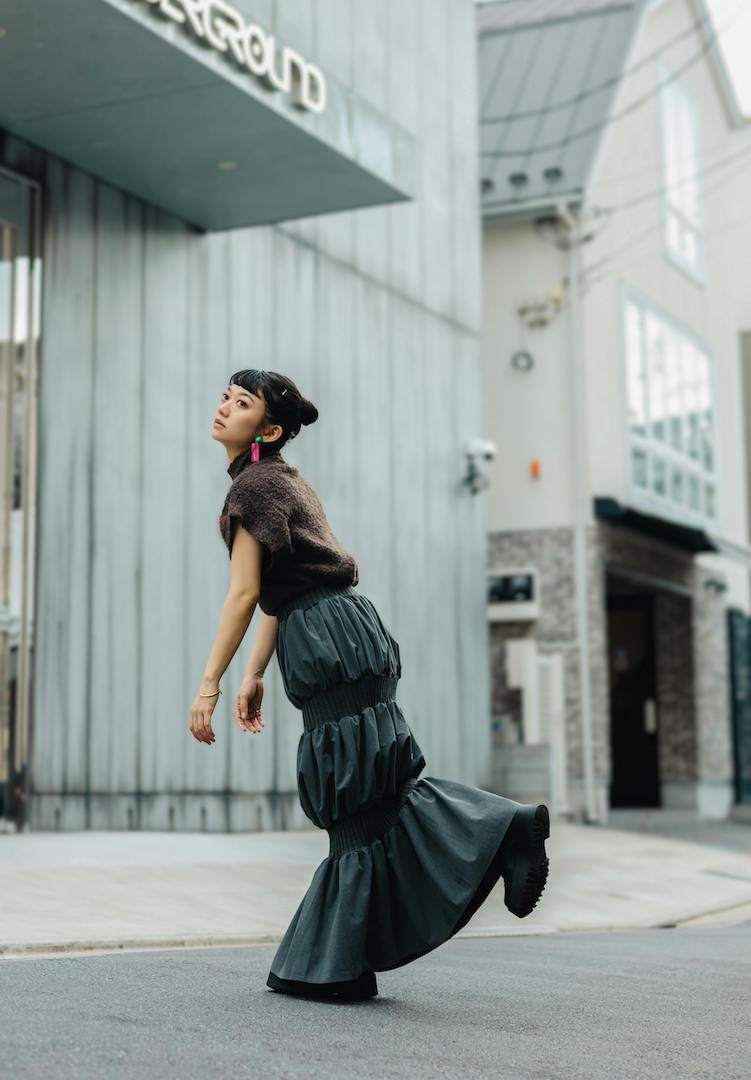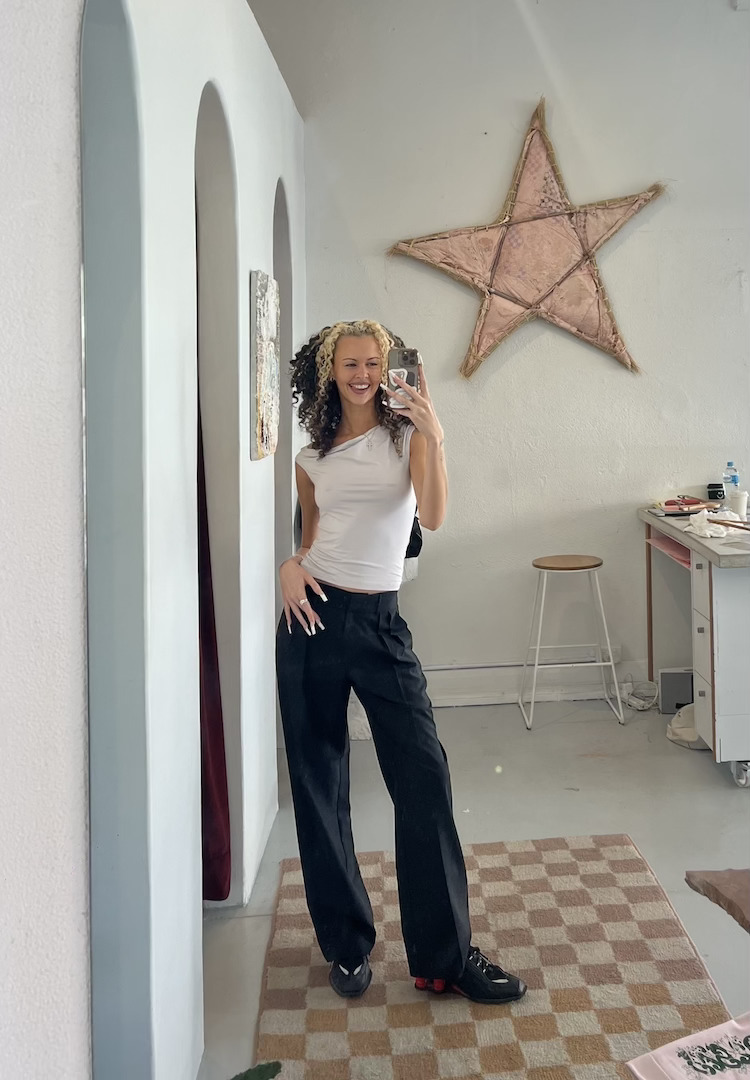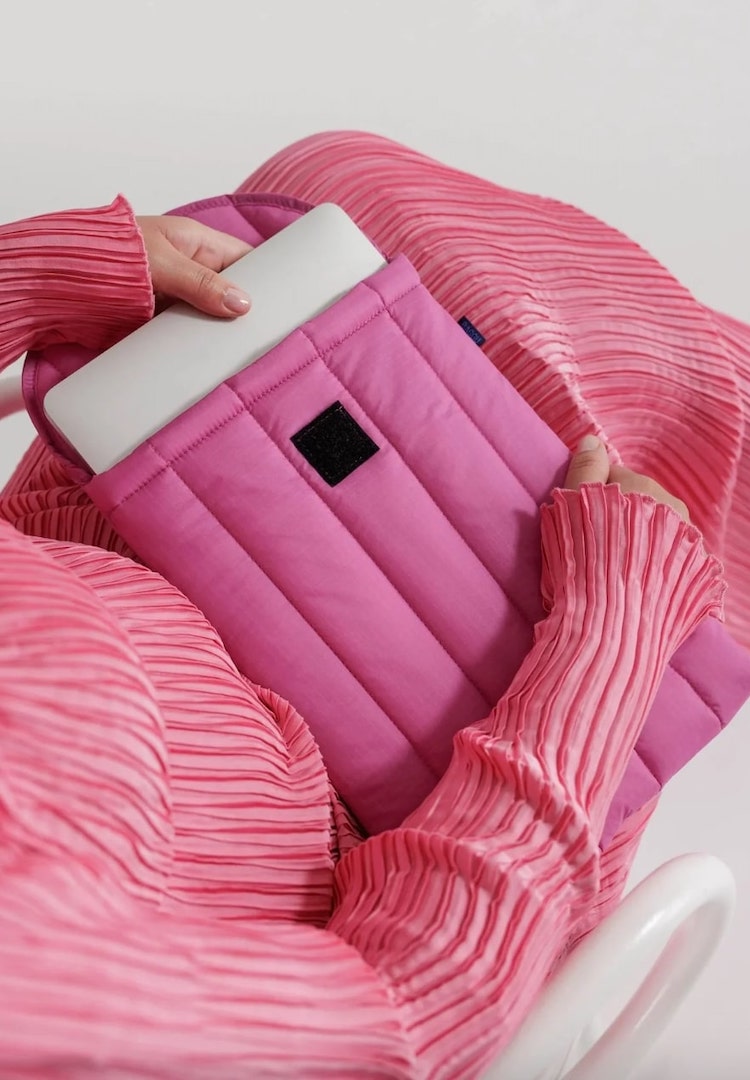An Australian model on why diversity in the modelling industry is still performative
PHOTOGRAPHY BY JESS BROHIER
WORDS BY EMMA ANVARI
Representation shouldn’t mean what you deem ‘palatable’.
It’s no secret we’ve turned a corner in 2020 when it comes to representation. Spurred on by the recent wave of the Black Lives Matter movement, we have affixed our eyes to the beauty and fashion industries, gauging their response and holding them accountable for change.
Despite this momentum, the conversation is still far from bearing fruit and we’re likely to be pushing for change for years to come, especially as some brands are capitalising on the present moment by projecting a false face of diversity.
This performative approach is something Australian model Ciara Dunne has noticed time and time again in her industry. Born to South-Indian and Irish parents, Ciara is no stranger to the damaging nature of Australia’s homogenous beauty standards.
As an Iranian-Australian woman still coming to terms with my racially-ambiguous identity, my conversation with Ciara felt cathartic. Over the course of the fastest hour-long conversation of my life, we discussed everything from performative representation, growing up ‘different’ and our mutual hatred for the word ‘exotic’.
Tell me about your experiences with beauty and race.
I’ve been modelling for five or six years now and I think the industry is really performative. You see all these companies cashing in on things like Black Lives Matter which is disgusting but hey, that’s capitalism. It’s convenient for them, they can make money off of it. A lot of the times when I’m on a shoot with bigger name companies, despite the fact they employ models who are POC, the staff working on the shoot are overwhelmingly White. It’s an interesting juxtaposition.
That creates a disconnect which leads to really uncomfortable situations when you are on a shoot. From microaggressions to outright racism – it’s really disgusting. I remember going for a shoot and the makeup artist berated me about my hairy eyebrows. He was just disgusted with me. I’ve found the more I engage with this industry the more I come away feeling shit about myself. It’s this insidious kind of racism.
Is modelling a long-term goal?
Modelling is not my life goal. If I can use [it as] a platform as a way to promote diversity then that’s great, but it won’t be something I’ll engage in forever. I want to get into public policy. I’m studying criminal justice and finishing my degree this year.
Tell me about your more everyday experiences with beauty and race.
Oftentimes I get pegged for a different race and when people find out I’m Indian it’s almost as if there’s some sense of disgust. For example, if you’re getting hit on by someone at a bar, sometimes they’ll try to guess your race (which is always a fun game we love to play). People guess I’m Latino or South American or something and when I tell them I’m actually Indian it’s kind of like “Oh, really? That’s what you are?” You’re not the right kind of exotic anymore. It definitely highlights this attitude we have in society that it’s only attractive to be a certain type of POC or it’s only attractive to be a POC to a certain extent.
Coming back to that word: ‘exotic’. What are your thoughts on that language?
I hate the word exotic. I hate it so much. Unfortunately, it’s something predominantly White men like to use on us and I think it’s an expression of colonialism. It’s scary to think it’s so deeply embedded in their psyche that it’s their instinct to use exotic to describe you. A lot of the time people of colour are either hypersexualised or have their sexuality completely eliminated –which I know is the case for a lot of Asian and South Asian men.
Just the very idea of finding an Indian man sexy or being able to have sex with an Asian man – a lot of people can’t even fathom that. When you think about it, who do we have as representations of Indian men on TV? It’s Apu [from The Simpsons] or Raj from The Big Bang Theory. It’s dehumanising. It cements those colonial-settler ideals.
What has it been like navigating these White standards of beauty?
I think you really need to completely detach yourself from them or else it’ll be the undoing of any self-esteem. We’ll never be able to attain that Eurocentric standard of beauty and we shouldn’t want to attain it. The industry’s openness to casting diversely has made it easier for me to feel beautiful, but at the same time, it’s hard to be at a shoot and feel attractive when you look around and every single person in a position of authority is White.
I recently did a shoot for quite a big Australian company which was part photoshoot and part interview. They didn’t like what I had to say and I had to sugar-coat everything which is not my style. After the shoot, they picked out all the bits they thought were ‘appropriate’ and asked me to send pictures and videos of my artwork which is inspired by Hinduism and Hindu iconography. My mum’s side of the family is Hindu. I remember being so gobsmacked by their audacity to actively silence me, a woman of colour, and then turn around and be like “We want to use aspects of your culture and profit off it”. A slap in the face. They want you to be brown and be visible, but in the way they consider palatable. The Australian public can look at you but only in the way we want them to look at you.
What’s your earliest memory of struggling with these standards?
Until grade one, I went by my Tamil middle name. I went to a predominantly Italian/Greek Coburg school and remember saying I wanted to be called Ciara, my Irish name. How sad that I didn’t feel comfortable with this beautiful name my mother had given me! I wanted something Whiter. I also remember when a girl in primary school told me my skin looks like the colour of shit. I cried about that. I remember straightening my hair every day, plucking my eyebrows and even waxing my legs in year six. We’re hairy, ethnic girls and at the time I felt very different and almost dirty. But body hair isn’t that deep for me anymore.
What do you think the industry is lacking?
I think the problem is where people of colour aren’t in positions of power. You’re giving these models a platform but you’re also disempowering and abusing Black and Brown bodies to create that product. It’s really scary as a consumer because you want to make the right choices but you’re just being fed absolute bullshit.

